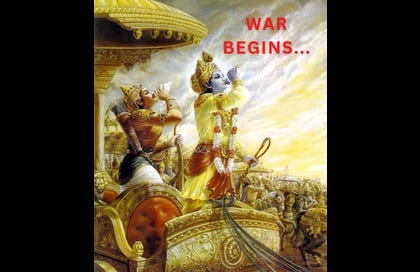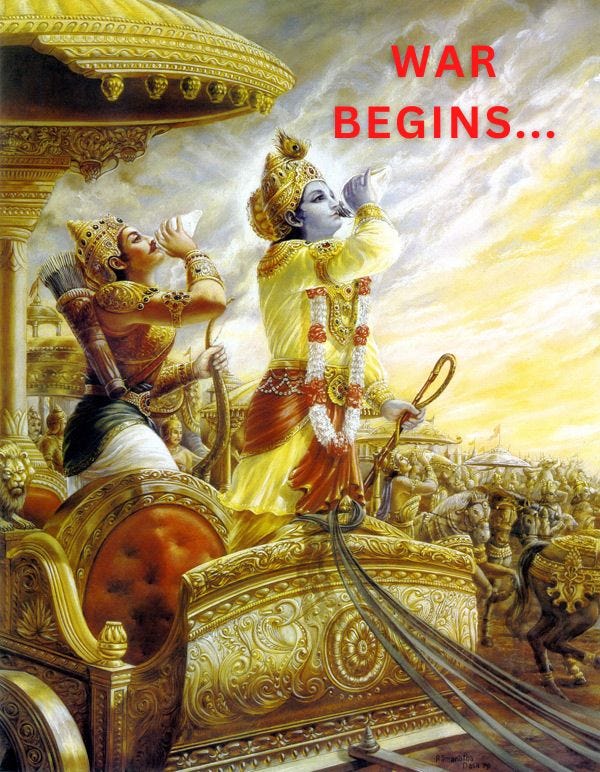arjuna uvāca
jyāyasī cet karmaṇas te
matā buddhir janārdana
tat kiḿ karmaṇi ghore māḿ
niyojayasi keśava~ B.G. 3.1
Meaning-
arjunaḥ uvāca — Arjuna said; jyāyasī — better; cet — if; karmaṇaḥ — than fruitive action; te — by You; matā — is considered; buddhiḥ — intelligence; janārdana — O Kṛṣṇa; tat — therefore; kim — why; karmaṇi — in action; ghore — ghastly; mām — me; niyojayasi — You are engaging; keśava — O Kṛṣṇa.
Translation of B.G 3.1-
Arjuna said: O Janardana, O Keshava, why do You want to engage me in this ghastly warfare, if You think that intelligence is better than fruitive work?
Commentary by me for Youth-
When Arjun does not want to fight in the war on the order of Krishna. As he does not like war and says that you told me Intelligence is better than fruitive work. But now why do you want me to fight in the war?
As students want to do brahmacharya but they do not know why or the reason behind doing it. How they will use this energy or they are just doing it for the sake of their ego or like everyone is doing it(mob mentality)?
Suppose you do not or can not use this energy produced by brahmacharya then it’s waste of time and effort. Students must focus on what they want to achieve something in life and give their best by doing brahmacharya. For e.g.- they can use this energy in their studies, playing sports, improving performance and helping people, or doing some constructive work. It can be pursuing your hobbies too. Basically, students must focus not only on gaining knowledge but also use that knowledge for actions to get results, or to get benefits. If something does not give any help then what’s the use of that education?
So, Krishna wants to tell Arjuna to do his Dharma(Law) and that he is a warrior and he needs to fight the war for the betterment of everyone. Otherwise, his skills are not good for no one.
Please share with your friends to get me motivated. So, I can write more newsletters.
Thanks,
Kapil



